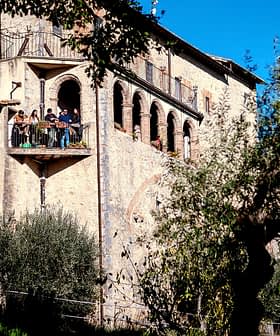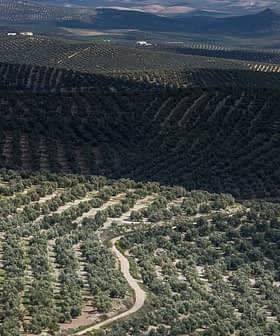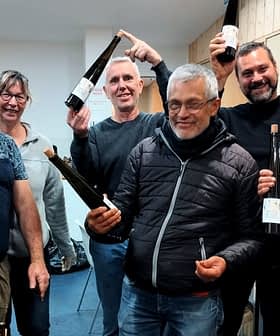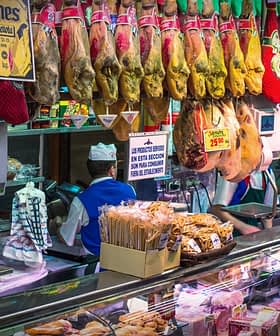Spanish Company Awarded for 'Olive Beer'

OliBa Green Beer, made with Empeltre olive extract in Spain, won the most innovative alcoholic beverage award at SIAL Paris 2022. The beer, inspired by an olive oil tasting, has unique flavors and is part of the growing global craft beer market, with plans for an alcohol-free version in the future.
A beer made with Empeltre olive extract in Bajo Aragón, Spain, has been awarded at the SIAL Paris 2022 Awards as the most innovative alcoholic beverage.
OliBa Green Beer was lauded by the panel of judges for its creativity, anticipation of market trends and originality.
According to Fortune Business Insights, a research firm, the global craft beer market is predicted to grow from $103 billion in 2021 to $211 billion in 2028, with many companies adding new ingredients to the four stalwarts of traditional beer brewing.
Ivan Caellas Colomés, OliBa Green Beer’s chief executive, told Olive Oil Times that the inspiration for the beer came during an olive oil tasting he was hosting at his company’s estate perched on the foot of the Pyrenees Mountains in northeastern Spain.
See Also:In Italy, a New Beer Made from Olive Leaves“The idea came to me during an oil-tasting session with some clients,” he said. “I make green oils with green olives, and I wanted to emulate the color of the oil in the beer.”
While he had no brewing experience before this, Caellas thought that brewing a craft beer with olives would be an excellent chance to showcase the region’s unique cultivars.
He said that adding the olive extract infused the flavors, aromas and colors of the olives into the beer, yielding a unique flavor profile.
Normally, the beer brewing process begins with malting, when ripe grains are soaked in water daily. After a few days, they are moved to a separate tank to aerate, allowing for the production of the necessary enzymes for fermentation.
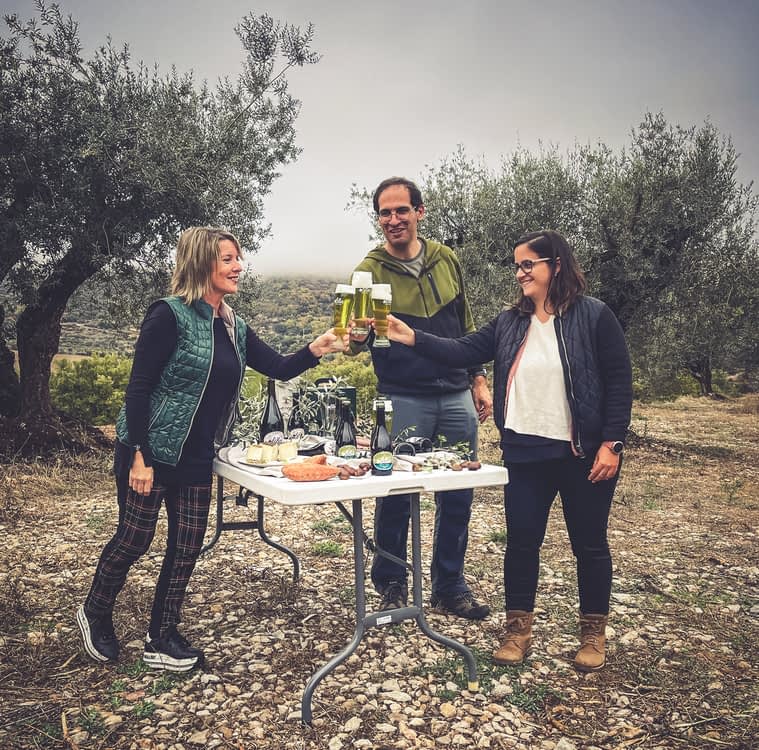
(Photo: Ivan Caellas Colomés)
After aerating, grains are roasted, creating malt. The length and temperature involved in this phase determine the beer’s color and taste.
Once the malt is roasted, the next step is to add water, which yields mash. The mash is heated to a near-boil before being cooled and filtered, becoming wart. During the heating process, hops are added to the wart.
The final phase of beer production is fermentation, when the wart becomes alcoholic as added yeast transforms sugar into ethanol.
“The olive extract is added at the end of the fermentation of the beer because, in this way, it is better infused with the taste and aroma of the extract,” Caellas said.
After fermentation, which takes about 10 days, the beer is placed in barrels and sent to sit for another 10 days before it is ready to drink.
Caellas said his Empeltre beer is the second in his line of green olive beers.
“In the Original One version, I decided to prepare the extract with my native olives from the pre-Pyrenees of the Pallars Jussà region,” he said. “In the next version, the Empeltre One, we collaborated with some producers from the region of Aragón using the autochthonous variety.”
Given the success of his first two, Caellas is already planning a third, alcohol-free olive beer.
Caellas added that he originally entered the SIAL Paris Awards after receiving several other awards at food competitions. He wanted to see how OliBa would fare at the world’s largest food and beverage show.
“We are very happy and proud of the work done by the OliBa Green Beer team,” he said about winning the innovation award. “For us, SIAL is a global showcase and winning the award helped us attract the attention of many distributors and agents.”
Indeed, he said the event is a great moment for networking. At the sidelines of the award ceremony in Paris, Caellas met with vendors interested in selling his beer in Belgium, Israel and Kazakhstan.
“We had many meetings with distributors interested in marketing our beer from many countries,” he said. “We made many contacts and closed many agreements that will help increase sales exponentially.”
“This award motivates us to continue doing what we like: experimenting and committing ourselves to the distinctive value of our beer,” Caellas concluded.


